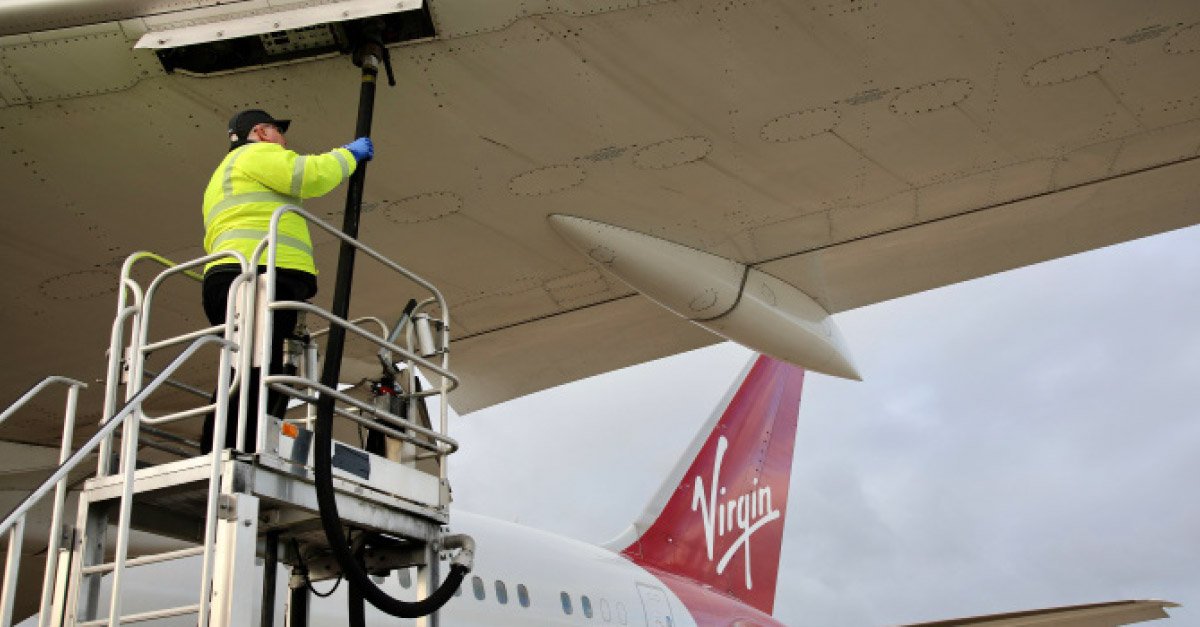A levy on aviation fuel suppliers will fund the UK sustainable aviation fuel (SAF) revenue certainty mechanism for fuel producers and be passed on to airlines and passengers.
The government confirmed the basis for funding the mechanism last week, rejecting calls for revenue from Air Passenger Duty (APD) or from the UK emissions trading scheme (ETS) to be used.
The decision, following a four-week consultation in March, was not unexpected. The government confirmed in its response: “Industry will fund the costs . . . through a variable levy on aviation fuel suppliers [with] individual contributions determined by market share.”
This would “allow costs to be widely spread across the supply chain including airlines, freight companies and passengers”.
The government noted: “The aviation industry and its passengers, rather than the general taxpayer, will benefit most from increased SAF production . . . Therefore, industry should fund the revenue certainty mechanism.”
Full details, including the size of the levy, “will be subject to further engagement”, with the government insisting it’s “committed to working closely with industry on the detailed design”.
The consultation drew 76 responses from airlines, airports, fuel and feedstock suppliers, energy firms, SAF producers, industry associations, academics and consultancies.
The government dismissed calls to redirect existing revenues “such as from the UK ETS or APD”, arguing: “We generally do not hypothecate taxes to particular spending programmes as it can reduce flexibility in spending decisions and lead to a misallocation of resources with reduced value for money for taxpayers.”
It also suggested: “APD contributes to mitigating the environmental impact of air travel by charging a duty on air passengers leaving from UK airports.”
The government likewise rejected a call to copy Singapore’s plan for a 1% SAF levy on flights from next year.
Three out of five respondents (58%) agreed with a levy on fuel suppliers. Just 14 disagreed, noting the costs “will be passed down to airlines and consumers, impacting the competitiveness of UK aviation” and come “in addition to APD increases”, new ETS charges, airport business rates and “cost of meeting the SAF mandate”.
The government explained: “The revenue certainty mechanism is intended to provide first-of-a-kind UK SAF projects with a guaranteed price for their SAF over a defined period.
“This is anticipated to pave the way for lower-cost UK SAF plants in the medium term, when investors will have confidence in the market price and the first-of-a-kind technology has proven itself at commercial scale.”
The ‘Guaranteed Strike Price’ (GSP) will be similar to the ‘Contracts for Difference’ already in place for renewable energy production, with the government noting “a major benefit of the mechanism is that investors in UK markets are familiar with it”.
It suggested: “The cost per passenger is likely to be limited and in line with the usual market variation of ticket prices.”
The government promised “further engagement” on the design of the levy and pledged to “continuously monitor the impacts”.
The UK SAF mandate came into force in January requiring SAF comprise 2% of aviation fuel on UK-departing flights this year and 10% by 2030. The SAF Bill introduced last week will provide powers to deliver the revenue mechanism, which is expected to be in place by the end of 2026.




